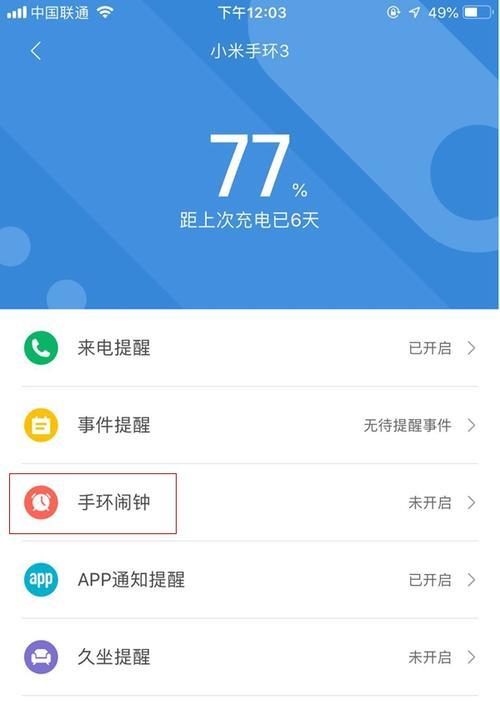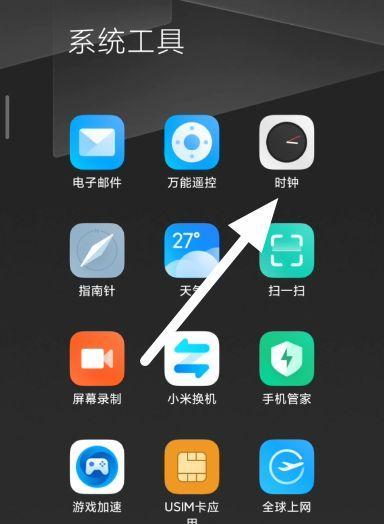 Mobile Tutorial
Mobile Tutorial
 Android Phone
Android Phone
 Detailed explanation of how to restore Xiaomi phone to factory settings (easy to do with one click and make your Xiaomi phone look brand new)
Detailed explanation of how to restore Xiaomi phone to factory settings (easy to do with one click and make your Xiaomi phone look brand new)
Detailed explanation of how to restore Xiaomi phone to factory settings (easy to do with one click and make your Xiaomi phone look brand new)
php Editor Banana will give you a detailed analysis of how to restore factory settings on Xiaomi phones. With just one click, your Xiaomi phone will look brand new. Factory reset is a method to restore your phone to its original state, clearing all data and settings from your phone, solving some common problems, and improving your phone's performance and stability. Through this article, you will learn how to operate it correctly to avoid data loss and other problems, and make your Xiaomi phone look like new again.

Back up important data
1.1 Make sure all important data has been backed up
First make sure all important data is on your phone All have been backed up before performing a factory reset. Use cloud services or choose third-party backup software to back up data by connecting to a computer.

Enter the factory reset menu
2.1 Unlock the phone and enter the settings interface
And enter the settings interface of the phone, first unlock your Xiaomi mobile phone.
2.2 Find the "System and Devices" option

Find and click the "System and Devices" option in the settings interface.
2.3 Select "Recovery and Reset"
Find and click "Recovery and Reset" under "System and Devices".
Choose to restore factory settings
3.1 Enter the "Restore and Reset" menu
Find and click the "Restore Factory Settings" option in the "Restore and Reset" interface.
3.2 Confirm to restore factory settings
Remind you that restoring factory settings will clear all data on the phone, and the system will pop up a warning box. Click the "OK" button to confirm.
Wait for the factory reset to be completed
4.1 Wait for the phone to restart
And start the factory reset operation, the phone will automatically restart. Please be patient, this process may take some time.
4.2 Make settings according to the system prompts
Connect to the network, etc., and make some basic settings according to the system prompts. After the phone restarts, such as selecting the language.
Reconfigure phone settings
5.1 Re-log in to Xiaomi account
In order to restore your personal data and settings, you need to re-log in to your Xiaomi account after completing the basic settings .
5.2 Update the system
To ensure that your mobile phone system is the latest version, it is recommended that you update the system after completing the account login.
Restore backup data
6.1 Use cloud service to restore
Now you can restore the backup data to your phone through the corresponding software, if you have used Xiaomi cloud service before or other cloud services backing up your data.
Reinstall the application
7.1 Open the app store
Search and download the application you need and enter the app store on your phone.
7.2 Re-log in to your application account
Re-log in to your application account after installing the application to restore your personal settings and data.
Optimize system settings
8.1 Clean up background processes
Find "Application Management" in the settings interface and enter, select "Running" to clean up unnecessary background processes. Options.
8.2 Adjust system settings
Turn off unnecessary notifications, etc., and adjust the system settings of your phone according to your needs and preferences, such as adjusting the screen brightness.
Tips
9.1 Restoring factory settings may cause data loss
To avoid data loss, please be sure to back up important data before restoring factory settings.
9.2 Restoring factory settings will clear all data
SMS messages and restoring factory settings will clear all data on the phone, please operate with caution, including applications, address books, etc.
One of the effective ways to improve the system running speed is to restore factory settings to solve the problem of Xiaomi mobile phones. Enter the factory reset menu, reinstall applications, and optimize system settings. By backing up important data, reconfiguring phone settings, and choosing to restore factory settings, you can easily restore your Xiaomi phone to factory status and restore backup data. Wait for the recovery to complete and get your phone looking like new again. To avoid data loss, remember the tips and operate with caution.
The above is the detailed content of Detailed explanation of how to restore Xiaomi phone to factory settings (easy to do with one click and make your Xiaomi phone look brand new). For more information, please follow other related articles on the PHP Chinese website!

Hot AI Tools

Undresser.AI Undress
AI-powered app for creating realistic nude photos

AI Clothes Remover
Online AI tool for removing clothes from photos.

Undress AI Tool
Undress images for free

Clothoff.io
AI clothes remover

AI Hentai Generator
Generate AI Hentai for free.

Hot Article

Hot Tools

Notepad++7.3.1
Easy-to-use and free code editor

SublimeText3 Chinese version
Chinese version, very easy to use

Zend Studio 13.0.1
Powerful PHP integrated development environment

Dreamweaver CS6
Visual web development tools

SublimeText3 Mac version
God-level code editing software (SublimeText3)

Hot Topics
 1386
1386
 52
52
 How to use sql datetime
Apr 09, 2025 pm 06:09 PM
How to use sql datetime
Apr 09, 2025 pm 06:09 PM
The DATETIME data type is used to store high-precision date and time information, ranging from 0001-01-01 00:00:00 to 9999-12-31 23:59:59.99999999, and the syntax is DATETIME(precision), where precision specifies the accuracy after the decimal point (0-7), and the default is 3. It supports sorting, calculation, and time zone conversion functions, but needs to be aware of potential issues when converting precision, range and time zones.
 How to create oracle database How to create oracle database
Apr 11, 2025 pm 02:36 PM
How to create oracle database How to create oracle database
Apr 11, 2025 pm 02:36 PM
To create an Oracle database, the common method is to use the dbca graphical tool. The steps are as follows: 1. Use the dbca tool to set the dbName to specify the database name; 2. Set sysPassword and systemPassword to strong passwords; 3. Set characterSet and nationalCharacterSet to AL32UTF8; 4. Set memorySize and tablespaceSize to adjust according to actual needs; 5. Specify the logFile path. Advanced methods are created manually using SQL commands, but are more complex and prone to errors. Pay attention to password strength, character set selection, tablespace size and memory
 How to delete rows that meet certain criteria in SQL
Apr 09, 2025 pm 12:24 PM
How to delete rows that meet certain criteria in SQL
Apr 09, 2025 pm 12:24 PM
Use the DELETE statement to delete data from the database and specify the deletion criteria through the WHERE clause. Example syntax: DELETE FROM table_name WHERE condition; Note: Back up data before performing a DELETE operation, verify statements in the test environment, use the LIMIT clause to limit the number of deleted rows, carefully check the WHERE clause to avoid misdeletion, and use indexes to optimize the deletion efficiency of large tables.
 How to add columns in PostgreSQL?
Apr 09, 2025 pm 12:36 PM
How to add columns in PostgreSQL?
Apr 09, 2025 pm 12:36 PM
PostgreSQL The method to add columns is to use the ALTER TABLE command and consider the following details: Data type: Select the type that is suitable for the new column to store data, such as INT or VARCHAR. Default: Specify the default value of the new column through the DEFAULT keyword, avoiding the value of NULL. Constraints: Add NOT NULL, UNIQUE, or CHECK constraints as needed. Concurrent operations: Use transactions or other concurrency control mechanisms to handle lock conflicts when adding columns.
 What are the oracle11g database migration tools?
Apr 11, 2025 pm 03:36 PM
What are the oracle11g database migration tools?
Apr 11, 2025 pm 03:36 PM
How to choose Oracle 11g migration tool? Determine the migration target and determine the tool requirements. Mainstream tool classification: Oracle's own tools (expdp/impdp) third-party tools (GoldenGate, DataStage) cloud platform services (such as AWS, Azure) to select tools that are suitable for project size and complexity. FAQs and Debugging: Network Problems Permissions Data Consistency Issues Insufficient Space Optimization and Best Practices: Parallel Processing Data Compression Incremental Migration Test
 How to clean all data with redis
Apr 10, 2025 pm 05:06 PM
How to clean all data with redis
Apr 10, 2025 pm 05:06 PM
How to clean all Redis data: Redis 2.8 and later: The FLUSHALL command deletes all key-value pairs. Redis 2.6 and earlier: Use the DEL command to delete keys one by one or use the Redis client to delete methods. Alternative: Restart the Redis service (use with caution), or use the Redis client (such as flushall() or flushdb()).
 How to add multiple new columns in SQL
Apr 09, 2025 pm 02:42 PM
How to add multiple new columns in SQL
Apr 09, 2025 pm 02:42 PM
Methods to add multiple new columns in SQL include: Using the ALTER TABLE statement: ALTER TABLE table_name ADD column1 data_type, ADD column2 data_type, ...; Using the CREATE TABLE statement: CREATE TABLE new_table AS SELECT column1, column2, ..., columnn FROM existing_table UNION ALL SELECT NULL, NULL, ..., NUL
 How to recover data after SQL deletes rows
Apr 09, 2025 pm 12:21 PM
How to recover data after SQL deletes rows
Apr 09, 2025 pm 12:21 PM
Recovering deleted rows directly from the database is usually impossible unless there is a backup or transaction rollback mechanism. Key point: Transaction rollback: Execute ROLLBACK before the transaction is committed to recover data. Backup: Regular backup of the database can be used to quickly restore data. Database snapshot: You can create a read-only copy of the database and restore the data after the data is deleted accidentally. Use DELETE statement with caution: Check the conditions carefully to avoid accidentally deleting data. Use the WHERE clause: explicitly specify the data to be deleted. Use the test environment: Test before performing a DELETE operation.



